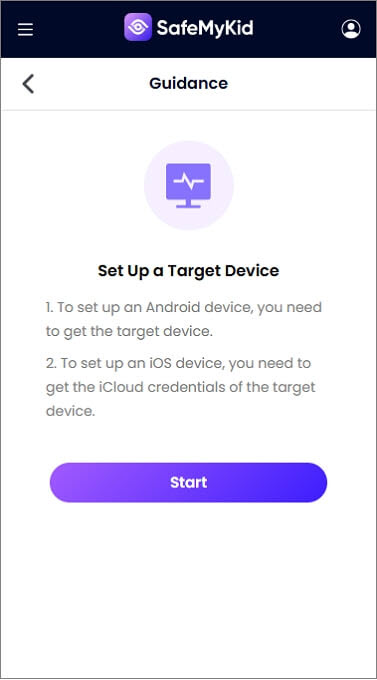Why Do Cheaters Want to Stay in Relationships: Understanding the Complexities of Infidelity

Infidelity is a complex issue that has long been a subject of debate and confusion. One of the most pressing questions that arise when discussing cheating is: why do cheaters want to stay in relationships?

In this blog post, I’ll dive deep into the psychology behind why some cheaters choose to stay in relationships even after engaging in infidelity. Let’s get started.
The Duality of a Cheater’s Mindset
Cheating often stems from conflicting desires—seeking excitement while craving stability. A cheater might want the thrill of an affair but still feel emotionally connected to their partner. This inner struggle creates a paradox where they betray the relationship yet hesitate to leave it.
Some cheaters convince themselves that their infidelity doesn’t mean they love their partner any less. They may separate emotions from actions, justifying their behavior while holding on to the security their relationship provides. This mindset plays a crucial role in why they choose to stay rather than walk away.
The “Having It All” Mentality

For some cheaters, staying in the relationship is a way to maintain the best of both worlds. They want the comfort of a committed relationship while indulging in the excitement of an affair. The idea of sacrificing either side—losing their stable partner or giving up the forbidden romance—feels unacceptable to them.
This mentality can stem from entitlement, fear of loneliness, or even a lack of empathy for their partner’s feelings. Instead of making a choice, they prolong the deception to keep their life as uninterrupted as possible.
7 Reasons Cheaters Want to Stay in Relationships
Here we’ll explore seven compelling reasons why some cheaters choose to remain in their relationships, even after betraying their partner’s trust. Understanding these reasons can help shed light on the inner conflicts cheaters face and offer insights into how relationships can move forward after an affair.
1. Psychological Factors Behind Cheating
There’s no denying that emotional needs play a huge role in why someone might cheat, but why do cheaters want to stay in relationships even after infidelity? It often boils down to the underlying psychological factors that affect their behavior.
The emotional attachment to their partner, combined with a fear of instability, can be another key reason why cheaters want to stay in relationships. Even when they’ve cheated, they know that leaving their current partner could lead to emotional chaos, a breakup, or strained family dynamics.
2. The Fear of Change: Why Leaving is Hard

Another reason why cheaters want to stay in relationships is the fear of change. Change, whether in the form of a breakup or starting fresh with someone else, can be daunting.
People who cheat often experience an internal conflict. They want the excitement and novelty of an affair, but they also fear the unknown that comes with leaving their current relationship.
3. Emotional Attachment and Guilt
Despite cheating, some individuals still maintain a strong emotional attachment to their partner. This attachment often prevents them from completely cutting ties, even if they’ve broken trust. Additionally, guilt can be a powerful motivator in keeping a cheater in a relationship.
Cheaters are often conflicted by feelings of guilt. While they might feel guilty for cheating, they might also feel guilty for the possibility of leaving their partner and hurting them even more. This guilt can create a cycle of indecision, where the cheater remains in the relationship to avoid causing additional pain.
4. Power Dynamics in Relationships

Sometimes, cheaters may feel that they hold power in the relationship and use that power to control the situation. This dynamic can be especially complex in relationships where one partner has significant emotional, financial, or social leverage over the other.
Some cheaters may feel needed in the relationship, whether due to emotional dependency or financial reliance. This sense of control can make it difficult for them to walk away, even if they’ve cheated. They may believe that their partner won’t be able to function without them, which only reinforces the desire to stay.
5. Financial or Logistical Reasons for Staying
In many cases, cheaters want to stay in relationships for practical reasons. The logistics of a relationship, such as shared finances, housing, or children, can be a significant barrier to ending things.
The thought of managing these aspects alone can be overwhelming, prompting cheaters to stay in relationships despite their infidelity.
6. Fear of Rejection and Low Self-Esteem
Some cheaters may stay in relationships because they fear rejection from their partner or feel they cannot find someone else who will accept them. This can be particularly true for those who feel insecure or have low self-esteem.
This fear of rejection, combined with a lack of confidence in their own worth, can keep cheaters in a relationship even when they are unhappy. The emotional comfort and reassurance that come with staying in a familiar relationship may outweigh the risks of pursuing a new romantic opportunity.
7. The Inability to Let Go of the Past
Finally, some cheaters remain in relationships because they are unable to let go of the past. These individuals may have fond memories of their early relationship or a strong connection to their partner's family or social circle.
The thought of severing these ties can be emotionally overwhelming, and they may hold on to the hope that things can return to how they once were.
SafeMyKid: Protecting Relationships in The Digital Age

In the age of digital technology, trust issues, and infidelity are increasingly becoming more difficult to navigate. With the constant presence of smartphones and social media, cheating is easier than ever.
If you suspect that your partner is being unfaithful or you want to discreetly monitor your loved one’s online activity, SafeMyKid is a great solution.
Key Features of SafeMyKid to Track Cheating Partner
- Discreet Monitoring: Safeguard your relationship without the cheater knowing.
- Detailed Reports: Keep track of all activities, including browsing history and blocked websites.
- Track Location: Monitor the real-time location of your partner.
- Stealth Mode – Operates silently in the background, ensuring your partner remains unaware.
- Call & Message Tracking – Access call logs, text messages, and even deleted chats for complete transparency.
- Social Media Monitoring – Track activities on WhatsApp, Facebook, Instagram, and other platforms to uncover hidden conversations.
How to Set Up SafeMyKid to Catch a Cheating Partner
Step 1. Sign Up
Create an account using your email address.

Step 2. Set Up the App
For iOS, simply log in with your iCloud credentials. For Android, download and install the app.

Step 3. Monitor Activity to Track Cheating Partner
Use the SafeMyKid dashboard to track your partner’s location, monitor text messages, and block inappropriate websites. It helps you stay informed and in control of your relationships in a world where privacy is constantly being challenged by technology.

FAQs About Why Cheaters Want to Stay in Relationships
To wrap up this comprehensive guide, here are some of the most frequently asked questions about why cheaters want to stay in relationships. These questions aim to clear up any doubts and provide deeper insights into the motivations behind infidelity and why some cheaters choose to stay.
1. Why do cheaters stay in relationships if they’re unhappy?
Many cheaters stay in relationships because of emotional attachment, fear of change, and financial or logistical reasons. They may still value the comfort and stability their relationship provides, even if they are unhappy or unfaithful.
2. Do cheaters feel guilty about their actions?
Yes, cheaters often feel guilty about betraying their partner’s trust. This guilt can create internal conflict, making it difficult for them to end the relationship. Many stay because they fear the emotional fallout of leaving, even though they’ve cheated.
3. Can cheaters change and stop their behavior?
While change is possible, it often requires self-awareness, accountability, and a willingness to work on the relationship. Cheaters may stay in relationships because they believe they can change, but without proper communication and commitment, the likelihood of change may be slim.
4. Is it common for cheaters to stay for financial reasons?
Yes, financial dependency can be a significant reason why cheaters remain in relationships. The prospect of losing financial stability or the fear of being financially burdened can make leaving seem unappealing, despite their infidelity.
5. How can one protect their relationship from infidelity?
Open communication, setting boundaries, and using tools like SafeMyKid to monitor online behavior can help protect relationships from infidelity. Staying informed and involved can foster trust and prevent emotional or physical cheating from happening.
Conclusion
The question of “Why do cheaters want to stay in relationships?” is a complex one that involves emotional, psychological, and practical factors. Many cheaters choose to stay due to a combination of guilt, fear of change, emotional attachment, and practical considerations.
If you’re dealing with trust issues in your relationship or want to ensure that your loved one’s online activity is safe, tools like SafeMyKid provide an invaluable way to discreetly monitor and protect what matters most.


